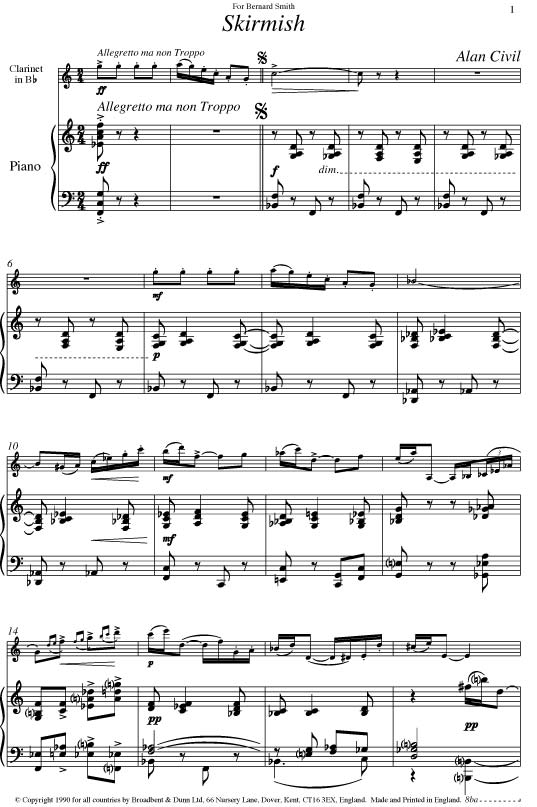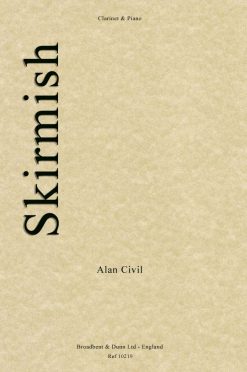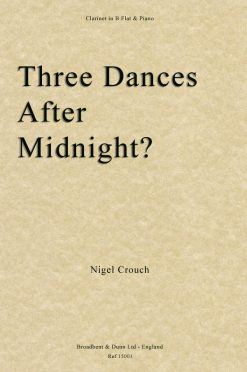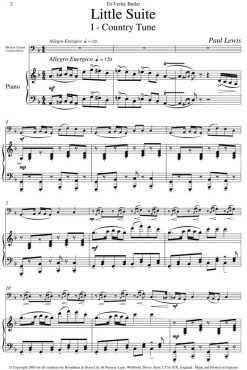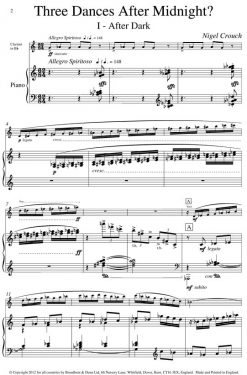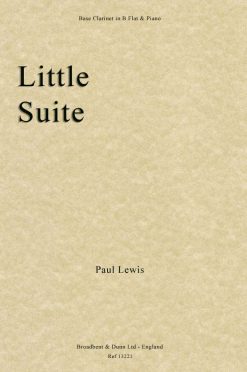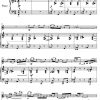£5.95
Piece Description
Additional information
| Media | |
|---|---|
| Composer | |
| Instrumentation | |
| Series |
Biography
Biography
Civil, Alan
Alan Civil was born in 1929 and died in 1989. Alan started to play the French horn as a young boy, and joined an army band as a teenager. He studied the horn with Aubrey Brain, the father of Dennis Brain, and played second horn to Dennis Brain in the Royal Philharmonic Orchestra, taking over as principal horn when Dennis Brain left. In 1955 Alan joined the Philharmonia as principal horn, and in 1966 he became the principal horn of the BBC Symphony Orchestra, where he remained until he retired in 1988. He also performed as a soloist and recordings include Mozart's 'Four Horn Concertos' and Benjamin Britten's 'Serenade for Tenor, Horn and Strings' with Robert Tear. He was also a member of the Alan Civil Horn Trio, taught at the Royal College of Music and was awarded an OBE in 1985. Alan was also a prolific composer and arranger, writing many pieces for the horn as well as for an array of unusual instrument combinations.
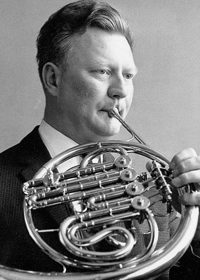
Related products
Clarinet & Piano
Clarinet & Piano
Nigel Crouch – Three Dances After Midnight? (Clarinet & Piano)
The first movement After Dark has been a Trinity College London Grade 7 Exam Piece since November 2022
Three Dances After Midnight? is a work that displays much of the clarinet's unique character. The first movement is positive with fast lyrical lines, punctuated with accented chromatic figures. The second movement has a long unfolding melody in a slow waltz style, melancholic and reflective in mood. The third movement is playful and quirky with an American influence, and concludes with a klezmer style passage leading to the final rhythmic ending. This work provides the opportunity for the performer to display a rounded technique where fast passagework, characterful articulation and soft lyricism create an ever changing interplay. The gripping opening of After Dark, the gentle melancholy of Before Dawn and the energetic style and bravura climax to Anytime You Like make this an ideal addition to the concert repertoire as well as examination and audition requirements, while the piano is also very much an equal partner throughout the piece.
Three Dances After Midnight? has been recorded on the album Under The Influence with Max Welford on clarinet and Marcus Andrews on piano.
The first movement After Dark has been a Trinity College London Grade 7 Exam Piece since November 2022
Three Dances After Midnight? is a work that displays much of the clarinet's unique character. The first movement is positive with fast lyrical lines, punctuated with accented chromatic figures. The second movement has a long unfolding melody in a slow waltz style, melancholic and reflective in mood. The third movement is playful and quirky with an American influence, and concludes with a klezmer style passage leading to the final rhythmic ending. This work provides the opportunity for the performer to display a rounded technique where fast passagework, characterful articulation and soft lyricism create an ever changing interplay. The gripping opening of After Dark, the gentle melancholy of Before Dawn and the energetic style and bravura climax to Anytime You Like make this an ideal addition to the concert repertoire as well as examination and audition requirements, while the piano is also very much an equal partner throughout the piece.
Three Dances After Midnight? has been recorded on the album Under The Influence with Max Welford on clarinet and Marcus Andrews on piano.Clarinet & Piano

